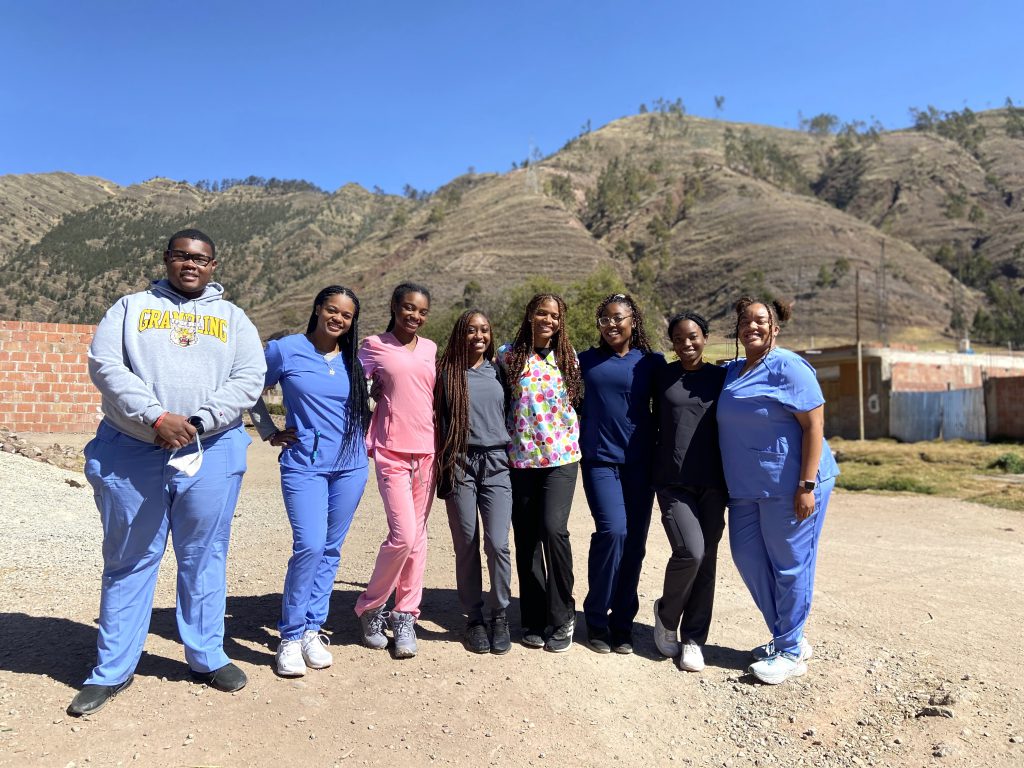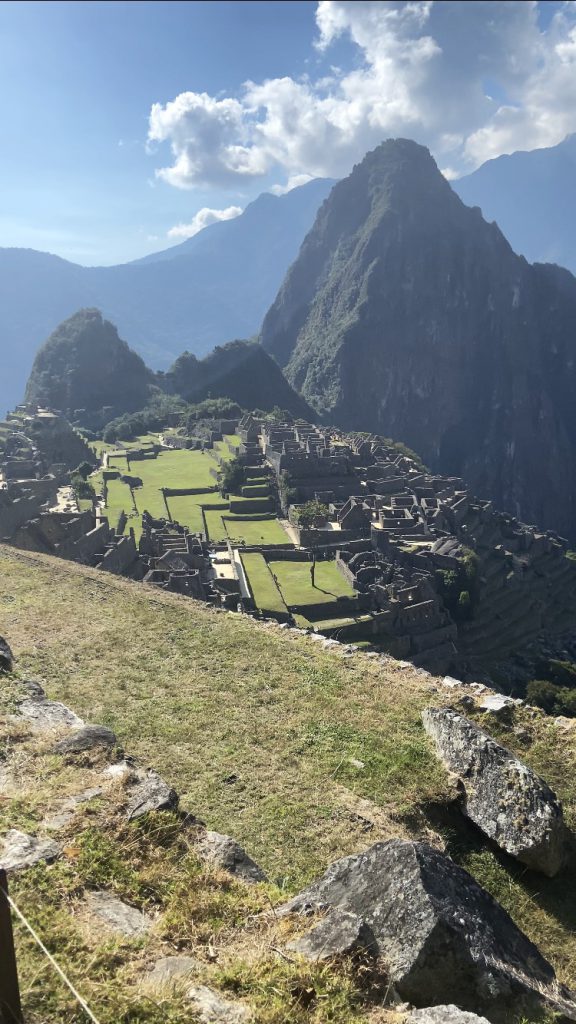Grambling State student takes medical group abroad for outreach program

Eight Grambling State University (GSU) students spent a couple of weeks in Cusco, Peru, this summer for an internship program serving more than 150 residents of that nation with a medical outreach program.
Last year, Grambling State senior biology major Andreanna Wright from Madison, Wisconsin, was assigned the role of Team Leader for the VAW Global Health Alliances Medical Chapter at GSU and through that organization set up the GSU internship program.
VAW Global Health Alliances (VAW Global) is a global health and development organization committed to cultivating sustainable and equitable partnerships with local communities and professionals through support and capacity-building for essential and accessible health services.
From June 27 – July 11, Wright and a team of seven other GSU students — a combination of biology majors and nursing majors — traveled to Peru and set up for the medical internship outreach program in which they took vitals, blood pressure, glucose, hemoglobin (for children), height, and weight of all of our patients.
Joining Wright as the students who participated in the internship were Essence Bivens, Jakyla Crump, Jazmin Scott, Kaiden Drain, Micaiah Barnes, Moneesha Gray, and Paige Stanford.
Upon arrival in Peru, the group underwent a quick orientation period set up by VAW before beginning their internship work.
“A couple of us actually arrived a day later than we were supposed to because there was a huge cancellation of flights the first day we were all scheduled to fly to Peru,” Wright said. “So half of us arrived on the day we were supposed to and half arrived a day later.”
“But that second day we all went through orientation under our team site coordinator. She basically gave us the run-through of how the two weeks were going to go and what clinics were going to be set up. They gave us a refresher course on how to take blood pressure and other vitals, glucose, hemoglobin, and how each station would be run.”
Wright said there were four stations set up for patients using mobile clinics that would move from city to city.
“We would stay in one city for two or three days and take care of people there before moving on to another city and doing the same there,” Wright said. “We shadowed the local doctors and actively participated in diagnosing and prescribing medications.”
“The doctors would give the immunization shots, but we would sit with them and listen to whatever the patients’ symptoms were. The doctors would prescribe medications for the patients, and we got to run the free pharmacy for the patients so they could have access to the medications they needed.”
Wright said the doctors were bilingual and could talk to both the interns and the patients. Wright said she also speaks both English and Spanish, which she said helped the communication process.
She said patients with prediabetic symptoms presented the most common ailment the group saw.
“We also saw a lot of patients with arthritis,” Wright said. “We saw a lot of farmers and a lot of older people — 60 or older, I would say. So, we saw a lot of people with arthritis in their hands, knees and backs. A lot of those people were in physical pain.
“There were a lot of elderly people living alone who didn’t have much support from their families, so it was important to us that we gave them as much medication as they needed so that they could take it themselves and feel relief. The doctors we shadowed told us a lot of those people hadn’t seen a doctor in years and years, so we had to give them enough medication to last for months in some cases.”

While the internships focused on work, they also did allow a little time for the GSU students to take in some of the Peruvian natural beauty and culture.
“The area we were in wasn’t really a tourist area,” Wright said. “But some of us did go to Machu Picchu (a 15th century Incan citadel set high in the Andes Mountains in Peru, above the Urubamba River valley). It was the sight of a lifetime — it was indescribably beautiful.”
Being that Peru is located below the equator, the interns also got to experience “winter in July” for the first time in their lives.
“It’s their wintertime in July,” Wright said. “It got down into the low 30s. I’m from Wisconsin, so it was a pretty good temperature for me. But the temperature in the house we were in got really cold at night. That house had half of our interns, and we were bundled up in our sweaters. I wish I would have brought my coat, because it was really cold at night.”
“But the daytimes were sunny and warmed up enough where it might have been cool, but it was still comfortable.”
In the end, Wright said the best part of receiving the experience of a lifetime while positively impacting others made the trip one she’ll always remember.
“We immersed ourselves fully into the Peruvian culture, and best of all, got to make a lasting impact on our patients,” Wright said. “Their faces of pure joy and their overwhelming kindness to us were unforgettable.
“It was a great learning experience, but maybe even a better life experience.”

